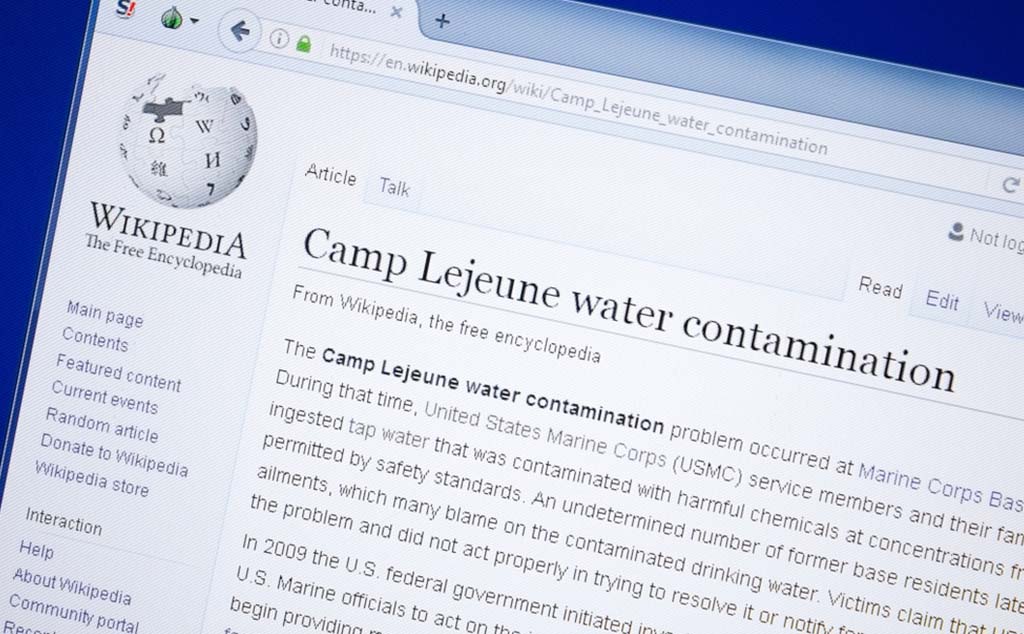
Camp Lejeune Lawsuits: Securing Compensation and Finding the Right Attorney Group for Your Claim
Camp Lejeune, a U.S. Marine Corps base in North Carolina, has been at the center of legal battles due to water contamination issues. For years, military personnel and their families stationed at Camp Lejeune were exposed to toxic chemicals in the drinking water, leading to a range of health problems. In this comprehensive guide, we will delve into the Camp Lejeune lawsuits, the process of claiming compensation, and how finding the right attorney group is crucial for a successful settlement.
1. Understanding Camp Lejeune Water Contamination: The Silent Threat
Background: Between the 1950s and 1980s, Camp Lejeune’s water supply was contaminated with hazardous chemicals, including volatile organic compounds (VOCs) such as trichloroethylene (TCE) and perchloroethylene (PCE). These contaminants have been linked to various health issues, including cancers, birth defects, and other serious illnesses.
2. The Camp Lejeune Lawsuits: Seeking Justice for Victims
Legal Action Timeline:
The first lawsuits related to Camp Lejeune water contamination emerged in the 1980s, but significant legal actions gained traction in the 2000s. Multiple lawsuits were filed against the U.S. government and the responsible parties for negligence in handling the contamination and failing to protect military personnel and their families.
Basis for Lawsuits:
- Negligence: Failure to address and rectify the contamination issue promptly.
- Toxic Tort: Allegations of harm caused by exposure to toxic substances.
- Failure to Warn: Claims that military personnel were not adequately informed about the risks associated with the contaminated water.
3. Health Impacts and Eligibility for Compensation
Health Conditions Associated with Camp Lejeune Contamination:
- Various cancers (e.g., leukemia, kidney cancer, bladder cancer)
- Birth defects and developmental disorders
- Neurological issues
- Liver and kidney damage
- Miscarriages and fertility problems
Eligibility for Compensation:
Individuals who lived or worked at Camp Lejeune during the specified contamination period and have developed health conditions associated with the exposure may be eligible for compensation. Family members, including spouses and children born with birth defects, may also have grounds for claims.
4. The Importance of Choosing the Right Attorney Group
Why Legal Representation Matters:
- Expertise: The complexities of Camp Lejeune lawsuits require attorneys with expertise in environmental law, toxic torts, and military-related cases.
- Navigating Regulations: Understanding the legal intricacies, including statutes of limitations and eligibility criteria, is crucial.
- Building a Strong Case: Experienced attorneys can gather evidence, consult medical experts, and build a compelling case for maximum compensation.
5. Steps to Claiming Compensation: A Roadmap for Success
a. Identify Eligibility:
- Military Personnel: Active-duty, reserve, and National Guard members stationed at Camp Lejeune during the contamination period.
- Family Members: Spouses and children born with birth defects during or after the contamination period.
b. Document Exposure and Health Issues:
- Service Records: Gather military service records establishing the period of residence at Camp Lejeune.
- Medical Records: Document health issues and their association with Camp Lejeune exposure.
c. Consult with a Specialist Attorney Group:
- Research and Reviews: Look for attorney groups with expertise in environmental law and toxic torts. Read reviews and testimonials.
- Free Consultation: Many attorney groups offer free initial consultations to assess the validity of your case.
d. Initiate Legal Action:
- File a Lawsuit: With the guidance of your attorney group, file a lawsuit against the responsible parties, often including the U.S. government.
- Class Action or Individual Lawsuit: Depending on the circumstances, join a class-action lawsuit or file an individual lawsuit for specific damages.
e. Negotiate a Settlement:
- Negotiation Process: Your attorney will engage in negotiations with the defendant or defendants to reach a fair settlement.
- Fair Compensation: Seek compensation for medical expenses, pain and suffering, lost wages, and other related damages.
f. Be Prepared for Litigation:
- Court Proceedings: In some cases, litigation may be necessary. Your attorney group will guide you through court proceedings if negotiations do not result in a satisfactory settlement.
- Legal Representation: Having a dedicated attorney by your side is crucial during litigation to present a compelling case.
6. Finding the Right Attorney Group: Key Considerations
a. Specialization:
- Environmental Law: Ensure the attorney group specializes in environmental law and has a track record in handling toxic tort cases.
b. Experience:
- Camp Lejeune Cases: Look for an attorney group with experience specifically in Camp Lejeune lawsuits.
c. Resources:
- Legal Team: Assess the size and expertise of the legal team, including researchers, medical experts, and litigators.
d. Success Record:
- Settlements and Verdicts: Review the attorney group’s success record in securing settlements and favorable verdicts for clients.
e. Client Reviews:
- Testimonials: Read client reviews and testimonials to gauge the satisfaction of previous clients.
f. Free Consultation:
- Initial Consultation: Opt for attorney groups offering free initial consultations to discuss the specifics of your case.
Camp Lejeune lawsuits represent a fight for justice and compensation for those who suffered due to water contamination. Claiming compensation requires meticulous documentation, legal expertise, and the right attorney group by your side. As you embark on this journey, remember that justice is not just a legal process; it’s a step towards healing and reclaiming control over your life. With the right guidance, your pursuit of justice can lead to a brighter and healthier future.



